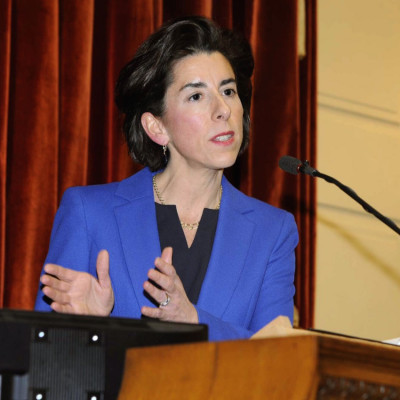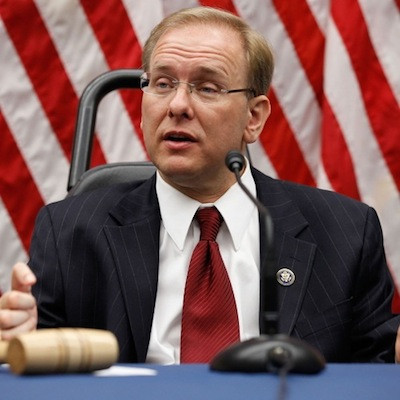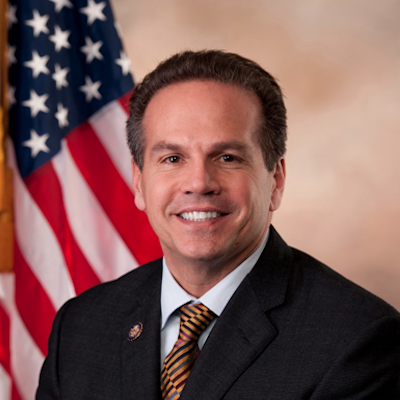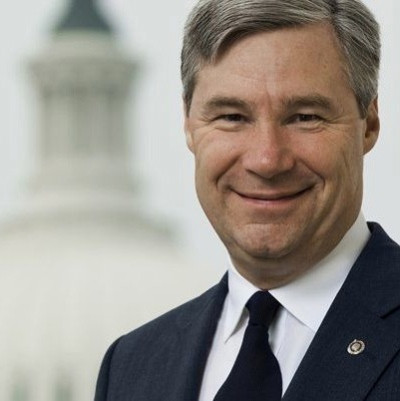Weiss: Senate Health Bill Vote Expected This Week, Dems Call Bill “Meaner” Than House Version
Monday, June 26, 2017
The long-awaited Senate health bill text crafted by a group of 13 GOP senators (all male) appointed by Senate Majority Leader Mitch McConnell of Kentucky to replace and repeal President Obama’s Affordable Care Act of 2017 (ACA), popularly, called Obamacare, was unveiled days ago. Republican lawmakers have worked for over seven years to dismantle the Democratic president’s landmark health care law. Supporters say that ACA brought health care coverage to an estimated 20 million Americans, covered between marketplace, Medicaid expansion, young adults staying on their parent’s plan, and other coverage provisions. Critics charge that Obamacare imposed too many costs to business owners.
Minority Leader Chuck Schumer and Senate Democrats lashed out at GOP Senate leadership charging that the Senate health bill, titled “Better Care Reconciliation Act of 2017,” was written behind closed doors without a single committee hearing being held or draft bill text being circulated to the public. Some Republican senators also expressed frustration for not seeing the details of the GOP bill before its release on June 22, 2017.
Like Senate Democrats, Health and Human Secretary Tom Price was left in the dark, too. At a Senate hearing before the release of the Senate bill the Trump Administration’s top health official stated that he had not seen any legislative language.
GET THE LATEST BREAKING NEWS HERE -- SIGN UP FOR GOLOCAL FREE DAILY EBLASTSenate Health Bill “Meaner” than House Version
Despite President Trump’s campaign pledge not to touch popular entitlement programs, like Medicare and Medicaid, he strongly endorsed the House Republican passed health bill, the American Health Care Act of 2017 (AHCA). At the eleventh hour, Trump twisted the arms of reluctant GOOP House members to gain their support of the controversial health care bill. Celebrating the passage of AHCA at the White House Rose garden, the president told the attending Republican lawmakers and guests that the GOP health bill was a "great plan," adding that it was "very, very, incredibly well-crafted." It was reported weeks later, after a closed-door luncheon with 15 Republican Senators, Trump had called AHCA “mean” and urged the attending Senators make their legislative proposal “more generous.”
With the release of the Senate health bill, Senate Minority Leader Schumer called the bill “meaner” than the House passed version, stressing its negative impact was far worse than AHCA. Trump called the House health bill “mean.” Schumer views the Senate’s version “meaner.”
GOP Senate leadership is pressing for a floor vote before the upcoming July 4th Congressional recess. To meet this deadline, this vote must take place by the end of next week, either Thursday or Friday, after 20 hours of debate. Early next week the Congressional Budget Office will release its score, detailing cost and coverage impact, on the Senate health bill. Moderate Republican senators might just be influenced not to vote for the bill if reduces health coverage for millions of Americans.
It usually takes 60 votes to pass a bill in the Senate. But, GOP Senate leadership is using a technical parliamentary procedure, referred to as reconciliation, to allow the Senate health bill to pass with only 50 votes, including the Vice President as a tiebreaker.
At press time, there are four conservative senators (Rand Paul of Kentucky, Ted Cruz of Texas, Mike Lee of Utah and Ron Johnson of Wisconsin) and one moderate senator (Dean Heller of Nevada)., who have publicly expressed their opposition to the Senate health bill. With all Democratic and Independent senators in their caucus opposing passage of the bill, GOP Senate leadership can only afford the defection of two Republican senators if they want their bill to pass.
Meanwhile, a 100-year old organization, Planned Parenthood, is gearing up to fight a provision of the Senate health bill that would cut $555 million in funding. Two moderate GOP Senators, Susan Collins of Maine and Lisa Murkowski of Alaska, are on the fence voting for the bill if cuts are made to Planned Parenthood.
Aging Groups See Writing on Wall if Senate Passes Health Bill
The released 142-page GOP Senate health bill, written hastily behind closed doors, will overhaul the nation’s health care system, impacting on one-sixth of the nation’s economy. Dozens of aging, health care and medical groups, including AARP, National Committee to Preserve Social Security and Medicare (NCPSSM), the American Medical Association, and the American Hospital Association, are voicing their strong opposition to the GOP Senate’s health care fix.
And this list keeps growing as next week’s Senate vote approaches.
The Washington, DC-based AARP, representing a whopping 38 million members, vows to hold GOP Senators accountable for a bill that hurts older Americans. The nonprofit group charges that “the legislation imposes an “Age Tax” on older adults – increasing health care premiums and reducing tax credits [that made insurance more affordable under Obamacare], makes cuts to both Medicaid funding, and yet gives billions of dollars in take breaks to drug and insurance companies.”
“AARP is also deeply concerned that the Senate bill cuts Medicaid funding that would strip health coverage from millions of low-income and vulnerable Americans who depend on the coverage, including 17 million poor seniors and children and adults with disabilities. The proposed Medicaid cuts would leave millions, including our most vulnerable seniors, at risk of losing the care they need and erode seniors’ ability to live in their homes and communities,” says
AARP Executive Vice President Nancy LeaMond, in a statement.
“The Senate bill also cuts funding for Medicare which weakens the programs ability to pay benefits and leaves the door wide open to benefit cuts and Medicare vouchers. AARP has long opposed proposals that cut benefits or weaken Medicare, adds LeaMond.
LeaMond says, “As we did with all 435 Members of the House of Representatives, AARP will also hold all 100 Senators accountable for their votes on this harmful health care bill. Our members care deeply about their health care and have told us repeatedly that they want to know where their elected officials stand. We strongly urge the Senate to reject this bill.”
Another Washington-DC based organization, the National Committee to Preserve Social Security and Medicare, an advocacy group whose mission is to protect Social Security and Medicare, issued a stinging statement criticizing the Senate health bill.
“The Senate’s version of AHCA is an exercise in political expediency that does nothing to safeguard access to quality healthcare for older Americans. President Trump rightly called the House-passed bill ‘mean’ and lacking ‘heart.’ Unfortunately, the Senate bill is only marginally less mean in some ways, and even more heartless in others, says Max Richtman, President & CEO of the National Committee to Preserve Social Security and Medicare.
Adds, Richtman, “The Senate health bill is “a lose-lose for seniors and the American people. The biggest loss is that the AHCA ends the Medicaid program as we know it. Astoundingly, the Senate bill makes even deeper cuts to Medicaid than the House did. This is devastating news for today’s and tomorrow’s seniors suffering from Alzheimer’s, cancer, the after-effects of stroke and other serious conditions who depend on Medicaid to pay for long-term care. Millions will lose Medicaid coverage over the next ten years.”
“Despite some tweaks to premium subsidies, the Senate legislation will make healthcare unaffordable for many near seniors aged 50-64. The legislation allows insurers to charge older Americans five times as much as younger adults. Though the Senate bill nominally protects people with pre-existing conditions, the waiver of essential benefits means older patients with pre-existing conditions like diabetes, cancer, and heart disease will pay sky-high premiums [making these premiums unaffordable to most]. Finally, the bill weakens Medicare by reducing the solvency of the Part A Trust fund,” notes Richtman.
Looking at a Crystal Ball
Darrell M. West, vice president and director of Governance Studies at the Washington, D.C.-based the Brookings Institution, says that the Senate health bill does not fix the issues critics had with the House version. “It moves Medicaid from an entitlement to a discretionary program. It uses a longer phase-in period than the House, but imposes deeper cuts on the program. This is very problematic from the standpoint of poor and disabled people who need help,” says West.
According to West, Republican Senators from more moderate states already have said they will not support the current version. There also are conservative Senators who feel the bill does not go far enough in repealing Obamacare. If those positions hold up, it doesn’t look like the bill will pass.
West warns those who oppose the passage of the Senate health bill to not underestimate Senate Majority Leader Mitch McConnell. “He is willing to negotiate with individual Senators to get their votes so it is premature to call the bill dead. McConnell knows the Senate well and understands what compromises need to be made to get to 50 votes,” notes West.
If Senate Republicans pass their health care bill next week, I predict they might just find out that they have “awakened a sleeping giant,” the Democrats. When the dust settles after the 2018 mid-term elections we will find this out.
Herb Weiss, LRI’12 is a Pawtucket writer covering aging, health care and medical issues. To purchase Taking Charge: Collected Stories on Aging Boldly, a collection of 79 of his weekly commentaries, go to herbweiss.com.
Related Slideshow: RI Democrats React to Trump’s Budget - 2017
Related Articles
- Weiss: Housing Report Supports Push to Approve Question 7
- Weiss: The Political Legacy of James E. Doyle
- Weiss: Attack Stunned Area Vets - Pearl Harbor Survivors Recall Horror of Dec. 7, 1941
- Weiss: Can Our Nation Survive President-Elect Trump & the GOP’s Control of Capitol Hill?
- Weiss: Samaritans Celebrate Their 40th Birthday
- Weiss: This ‘Age Beat’ Writer to Publish Collected Stories on Myriad of Aging Issues
- Herb Weiss: How the Presidential Election Impacts Social Security
- Weiss: The Age of Disruption Tour’ Comes to Cranston
- Weiss: Rhode Island Lawmakers Can Say Never Again
- Weiss: Regular Folks Give Sound Advice to Class of 2016 for Future Success
- Herb Weiss: Revelations that Bring Together Heaven and Earth
- Weiss: Search on for GOP Senators to Protect Medicare
- Weiss: Overhauling Social Security & Medicare Gets ‘Thumbs Down’ in Recent Poll Findings
- Weiss: GOP Health Care Reform Moves to Senate
- Weiss: Experts Say Isolation and Loneliness Impacting More Older Americans
- Weiss: CBO Numbers Says GOP Health Plan Benefits Young, Healthy…Not Seniors
- Weiss: Trump Budget Could Fray Nation’s Social Security Net, Hurt Seniors
- Weiss: Assistance to Employee Caregivers Good for Everyone’s Bottom Line
- Weiss: Long-Time Fans Look Forward to RIMHOF Induction Ceremonies This Week
- Herb Weiss: GOP Trial Balloon Called “Trojan Horse”
- Weiss: House GOP Leadership Puts its Health Care Proposal on Fast-Track
- Weiss: Trump Budget Proposal Makes Draconian Cuts to Aging Programs
- Weiss: GOP Health Care Proposal Pull at Last Moment
- Weiss: Carvelli - Making Lemonade Out of Life’s Lemons
- Weiss: AARP Scorecard - Taking a Closer Look at Ri’s Long-Term Services & Support to Older Adults













